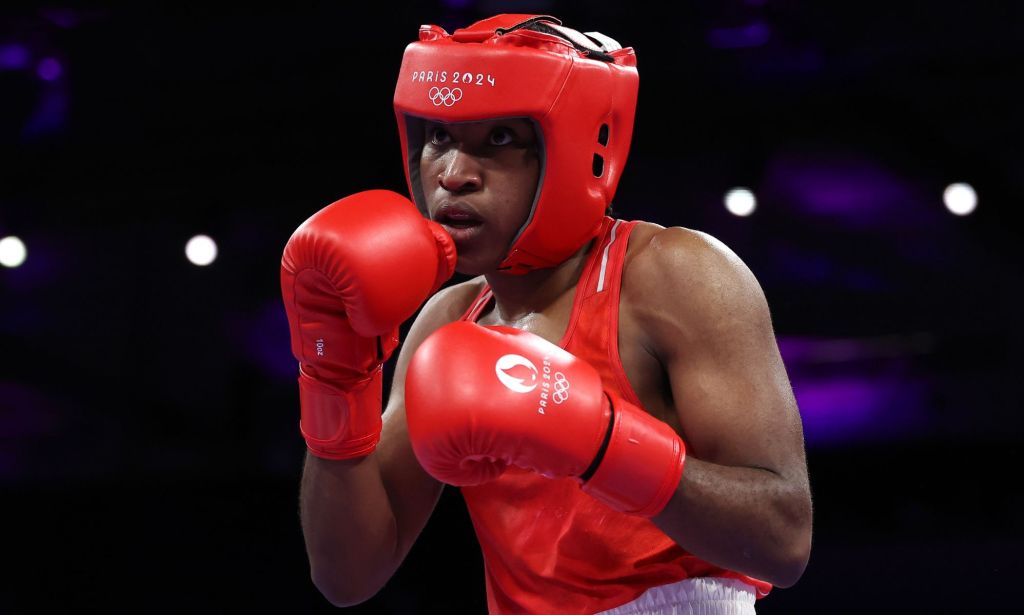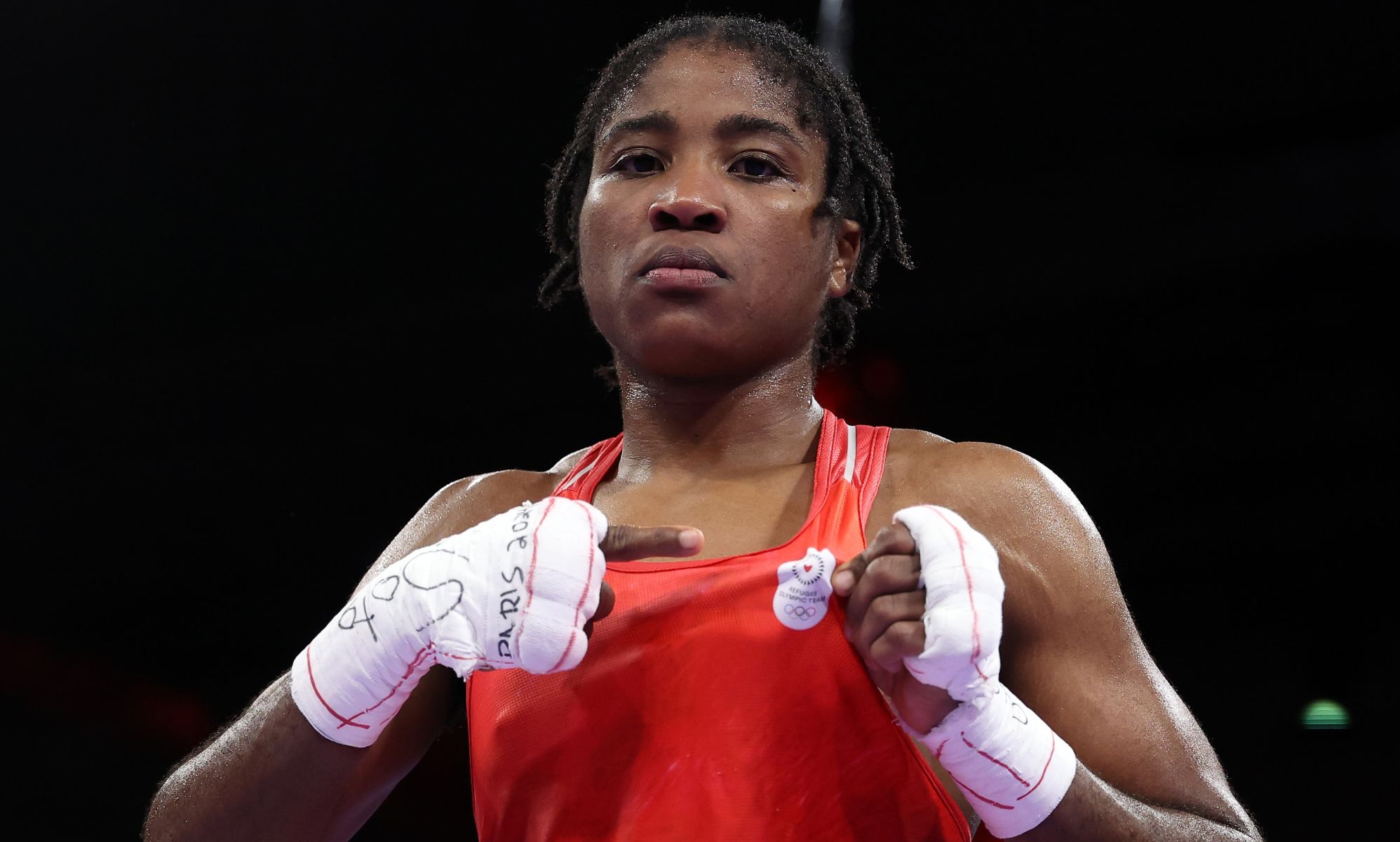
Cindy Ngamba is guaranteed a medal at the Paris Olympics. (Getty)
Cameroonian refugee Cindy Ngamba has issued a heart-warming message after making history as the first Refugee Olympic Team member to secure a medal.
Ngamba, who is based in the UK, beat France’s Davina Michel to reach the 75kg semi-finals on Sunday (4 August), guaranteeing her at least a bronze medal.
“It means the world to me to be the first ever refugee to win a medal,” she said. “I’m a human, just like any other refugee and athlete all around the world.”
The IOC Refugee Olympic Team, which first started competing at the Rio Games in 2016, was created for athletes who have been forcibly displaced and cannot compete for their home country as a result.

Ngamba, who was the team’s flagbearer during the opening ceremony in Paris, moved to the UK from Cameroon aged 10, but cannot compete for Team GB because she does not have a British passport. She is unable to return to Cameroon because of her sexuality – homosexuality is punishable by up to five years in prison in the Central African country.
The boxer wants her success to be a beacon of hope for the team, which consists of just 37 athletes, representing more than 120 million people around the world.
“To all the refugees around the world, keep believing,” she said. “You can achieve whatever you set your mind to. A lot of people won’t believe in you, a lot of people didn’t believe in me.
“But, at the end of the day, it is just me in the ring. Only I can control the outcome.”
Who is Cindy Ngamba?
Born on 7 November 1998, Ngamba grew up with her mother in Cameroon but eventually moved to the UK to live with her father. Despite living there for more 15 years, and having won national titles, she is still fighting to gain British citizenship, having applied several times – supported by GB Boxing.
She studied criminology at university but five years ago, she and her brother were detained at an immigration office because of paperwork issues and sent to a London detention centre, where she was threatened with deportation. The pair were released the following day.
“The mind-set is very different,” she said. “During my cases, I tried to use my boxing, me going to school or college but the Home Office did not want to hear any of it.
“You could get put in prison or get killed and with me being gay, I could not get sent back.”
She began boxing in Bolton when she was 15, eventually training with the GB Boxing team. Over the course of her career, she has won 26 of her 30 amateur fights. Performance director Rob McCracken has described her as part of the family, according to The Guardian.
She faces Panama’s Atheyna Bylon in the semi-finals, which, she said, will show “everyone what I can do”.
Share your thoughts! Let us know in the comments below, and remember to keep the conversation respectful.
